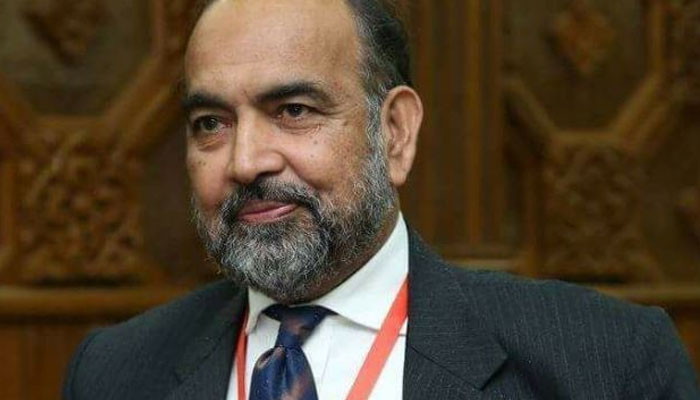CII finds Article 45 of Constitution un-Islamic
ISLAMABAD: The Council of Islamic Ideology (CII) has found Article 45 of the Constitution, which gives power to the President of Pakistan to grant pardon to convicts, un-Islamic.
While considering a reference made by the Ministry of Law and Justice regarding an amendment sought in the constitutional provision, the Council noted that the president could not pardon any punishment given under Islamic laws of Hadood and Qisas. The constitutional amendment bill was recently moved in the Senate. The Council said that empowering the head of the state with such powers of pardon is against the Islamic Shariah. The Council, however, said that the president has full right to exercise such a power in punishments given under penal code (man-made law) and which does not relate to Haqooqul Ibaad (duties towards mankind in Islam). The Council said that the president in the interest of the country and the nation could grant pardon or remit the sentence.
Article 45 of the Constitution envisages, “The President shall have power to grant pardon, reprieve and respite, and to remit, suspend or commute any sentence passed by any court, tribunal or other authority.” The Jamaat-e-Islami chief, Senator Sirajul Haq, had recently moved a constitution bill in the Senate recommending amendment in Article 45 of the Constitution. Siraj had proposed a proviso to be added to Article 45. The recommended proviso envisages, "provided the president shall not use these power in relation to punishments given under Hadood and Qisas," the Islamic laws.
The Council in its meeting, held last week, considered the proposed amendment and noted that in the past too, the CII had deliberated on the subject and had concluded that the Article 45 in its present shape in un-Islamic. The said recommendation of the CII was published in its annual report for 2012-2013. However, according to sources the then parliament neither deliberated on the subject nor it moved to amend the Article 45 to change it in line with the teachings of Islam.
The Council will not forward its recommendation regarding Article 45 to the Law Ministry, which had referred the case to the CII. The CII’s recommendation will then be presented before the Senate for it consideration. Under the 1973 Constitution, no law could be made against the teachings of Quran and Sunnah. The CII was also constituted for the purpose of reviewing each and every law of the country to ensure that no such law is made or enforced which is against the teachings of Islam. The Council is also mandated by the Constitution to make recommendations to the parliament and the provincial assemblies as to the ways and means of enabling and encouraging the Muslims of Pakistan to order their lives individually and collectively in all respects, in accordance with the principles and concepts of Islam as enunciated in the Holy Quran and Sunnah.
It is also bound to advise a House, a provincial assembly, the president or a governor on any question referred to the Council as to whether a proposed law is or is not repugnant to the injunctions of Islam. The Council also makes recommendations as to the measures for bringing existing laws into conformity with the injunctions of Islam and the stages by which such measures should be brought into effect.
-
 ByteDance’s New AI Video Model ‘Seedance 2.0’ Goes Viral
ByteDance’s New AI Video Model ‘Seedance 2.0’ Goes Viral -
 Archaeologists Unearthed Possible Fragments Of Hannibal’s War Elephant In Spain
Archaeologists Unearthed Possible Fragments Of Hannibal’s War Elephant In Spain -
 Khloe Kardashian Reveals Why She Slapped Ex Tristan Thompson
Khloe Kardashian Reveals Why She Slapped Ex Tristan Thompson -
 ‘The Distance’ Song Mastermind, Late Greg Brown Receives Tributes
‘The Distance’ Song Mastermind, Late Greg Brown Receives Tributes -
 Taylor Armstrong Walks Back Remarks On Bad Bunny's Super Bowl Show
Taylor Armstrong Walks Back Remarks On Bad Bunny's Super Bowl Show -
 James Van Der Beek's Impact Post Death With Bowel Cancer On The Rise
James Van Der Beek's Impact Post Death With Bowel Cancer On The Rise -
 Pal Exposes Sarah Ferguson’s Plans For Her New Home, Settling Down And Post-Andrew Life
Pal Exposes Sarah Ferguson’s Plans For Her New Home, Settling Down And Post-Andrew Life -
 Blake Lively, Justin Baldoni At Odds With Each Other Over Settlement
Blake Lively, Justin Baldoni At Odds With Each Other Over Settlement -
 Thomas Tuchel Set For England Contract Extension Through Euro 2028
Thomas Tuchel Set For England Contract Extension Through Euro 2028 -
 South Korea Ex-interior Minister Jailed For 7 Years In Martial Law Case
South Korea Ex-interior Minister Jailed For 7 Years In Martial Law Case -
 UK Economy Shows Modest Growth Of 0.1% Amid Ongoing Budget Uncertainty
UK Economy Shows Modest Growth Of 0.1% Amid Ongoing Budget Uncertainty -
 James Van Der Beek's Family Received Strong Financial Help From Actor's Fans
James Van Der Beek's Family Received Strong Financial Help From Actor's Fans -
 Alfonso Ribeiro Vows To Be James Van Der Beek Daughter Godfather
Alfonso Ribeiro Vows To Be James Van Der Beek Daughter Godfather -
 Elon Musk Unveils X Money Beta: ‘Game Changer’ For Digital Payments?
Elon Musk Unveils X Money Beta: ‘Game Changer’ For Digital Payments? -
 Katie Holmes Reacts To James Van Der Beek's Tragic Death: 'I Mourn This Loss'
Katie Holmes Reacts To James Van Der Beek's Tragic Death: 'I Mourn This Loss' -
 Bella Hadid Talks About Suffering From Lyme Disease
Bella Hadid Talks About Suffering From Lyme Disease




